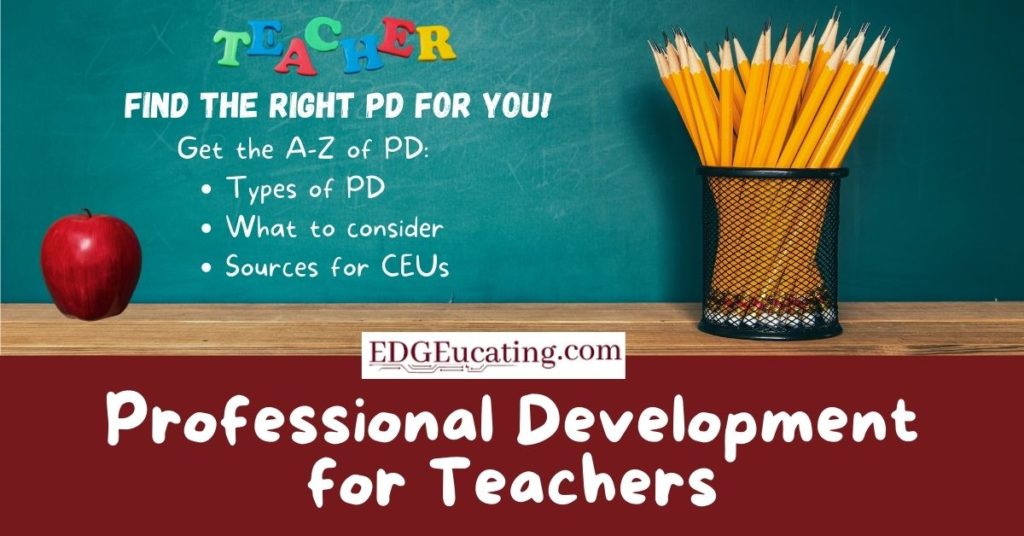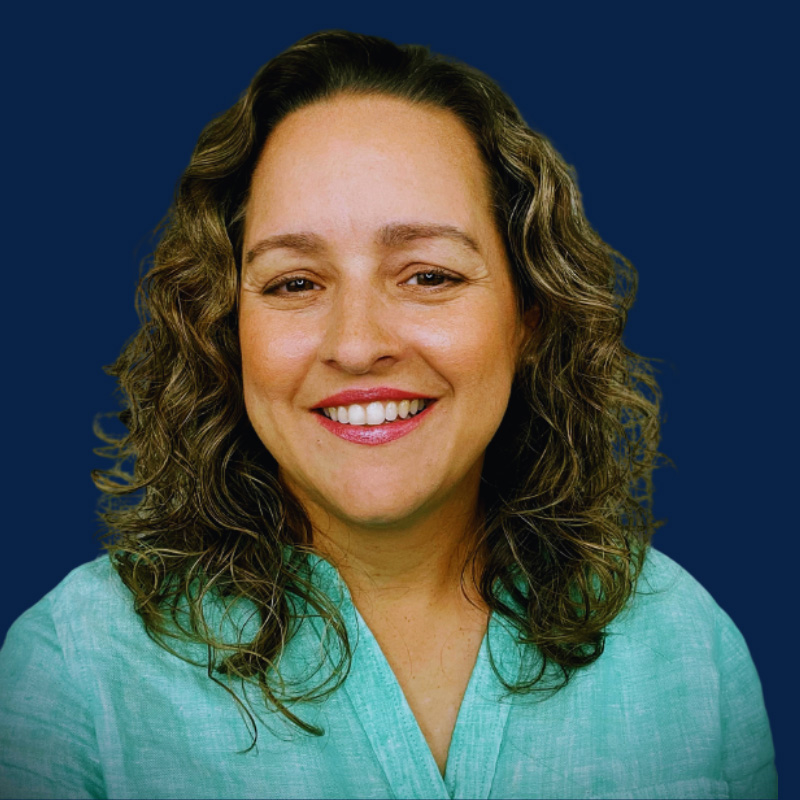Professional learning is an integral part of school culture and developing staff. Summer is a great time to reflect and revitalize yourself as an educator. One area that applies to both of these is professional development. Even though we know professional learning is important, a 2013 report on professional development (PD) by the National School Boards Association’s Center for Public Education noted that more than 90 percent of teachers report that professional learning is not helpful.
What types of professional learning are best?
Let me start by helping you identify what types of professional learning offerings are shown to be best suited for adults. Andragogy makes the following assumptions about the design of learning: (1) Adults need to know why they need to learn something (2) Adults need to learn experientially, (3) Adults approach learning as problem-solving, and (4) Adults learn best when the topic is of immediate value.
In practical terms, andragogy means that instruction for adults needs to focus more on the process and less on the content being taught. Strategies such as case studies, role-playing, simulations, and self-evaluation are most useful. Seek out opportunities where instructors adopt the role of facilitator or resource rather than lecturer or grader. Adults are internally motivated and self-directed.
This is why we recommend allowing teachers to choose what PD to attend based on their interests. This will increases their motivation and can lead to more engagement among participants.
What is considered PD?
Teacher professional development is any type of continuing education effort for educators that can help them improve their skills and, in turn, improve student outcomes. It can take place in formal or informal settings, such as conferences, courses, seminars, retreats, and workshops. Professional learning is an essential part of any educator’s career growth, and there are a variety of resources to support educators in their quest for excellence.
Where do you start?
“So, where do I start,” you ask? The first place to begin is with reflection. What do you want to further develop or improve upon? Our recently published video (linked below) can help with this if you need additional guidance.
Have you checked your licensing requirements for renewal?
Once you have decided on the area of focus, you may want to look at your required Continuing Education Units (CEU) for license renewal. Do you need CEU? If you need CEU it is important to seek out PD that will help you achieve these units and will typically require you to pay for the training. If you don’t need CEU then you can look at anything that you feel will enhance your skills as an educator.
What are your options?
One way to further your knowledge and skills is to learn from each other. Share ideas that can improve student learning through school-based professional development, Facebook teacher groups, or other teacher forums. These types of PD are generally free and can come from a variety of sources internal or external to the school. They can offer teachers skills in areas like curriculum design, assessment, data analysis, communication, resource recommendations, and leadership.
What skills should you focus on?
According to several recent publications (one of which is ThoughtCo), the top 10 skills for the modern teacher are:
- Online Collaboration Ability (Creation & Sharing Tools)
- Patience
- Continuous Learning Initiative
- Creativity & Adaptability
- Ability to Manage Online Reputation
- Knowledge of Technology Fundamentals
- Time Management
- Team Player
- Communication
- Organization
If you have no idea where to begin with your PD, I suggest starting with one of these areas. The next step is locating professional development. Personally, I suggest that you start with local options. Seek out educational conferences in your area. This can be accomplished with a simple google search or by asking the person who handles this information in your district or school. Most conferences send information to each district, if not each school near where they are taking place. The larger the conference the wider the area outreach and also generally the more expensive the registration fees are. However, staying local will keep travel costs at a minimum. Sometimes the local community centers and libraries also offer a list of available opportunities.
If you need CEUs and therefore need to focus on options that offer these conferences and online courses are generally the best option. Often your state department website will offer a list of training/CEU options within the state. Using recommendations from your state department works well to help ensure that your CEUs will be accepted for your license renewal since they are the ones recommending the training.
My favorite places to get CEUs…
Here are my top 10 recommended favorites:
- EDGEucating (online courses & customized PD)
- ISTE (conference and online university)
- FETC
- Your state gifted organizations usually have an annual gifted conference
- EdWeb
- PBS TeacherLine
- Coursera
- National Educators Association (NEA)
- SimpleK12
- KQED Teach
These are just a few but there are tons of options available. Be sure to check out your local museums, arboretums, zoos, and other facilities of this nature, as they often offer PD sessions, and sometimes they are free. Additionally, you might wish to check out Free Online Professional Development for Teachers, Professional Development from Teacher Vision, and 16 Professional Development Options for Teachers Over the Summer. These are articles from trusted sources that will help assist you on your PD quest.
Professional development is more critical than ever before.
Educators have gone above and beyond during the pandemic. Teachers have had to quickly adapt to remote learning, deal with technical issues and keep students engaged during uncertain times. Although the public health threat is not over, many schools have reopened and teachers continue to face challenges.
As teachers grapple with COVID learning loss, the social-emotional health of students, a mixture of remote and face-to-face learning, ramped-up safety precautions due to COVID-19, and residual burnout from the past school year, relevant professional development is more critical than ever before.
I hope this article will help ease some of your struggles as you seek to identify appropriate PD for yourself or your school. I encourage you to share comments for our community on your favorite PD resources. Teachers need teachers, so we look forward to hearing from you. Good luck as you discover the appropriate PD for your needs.



